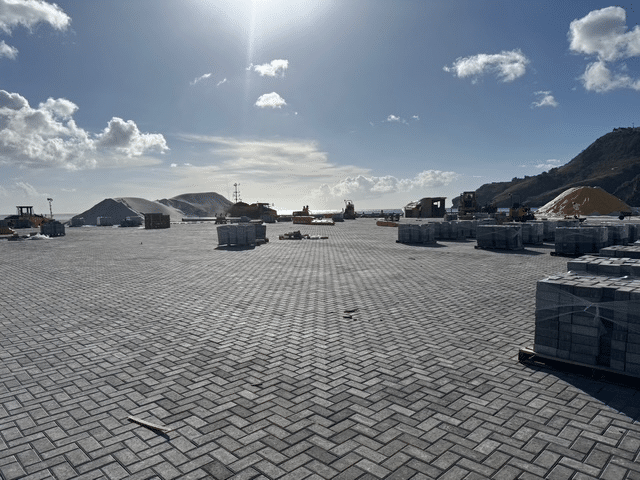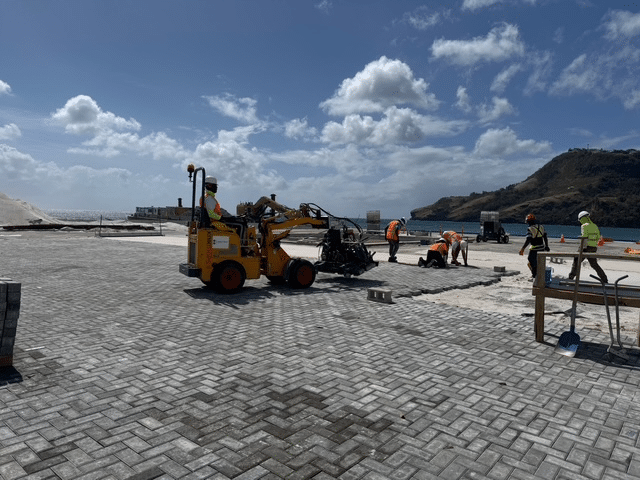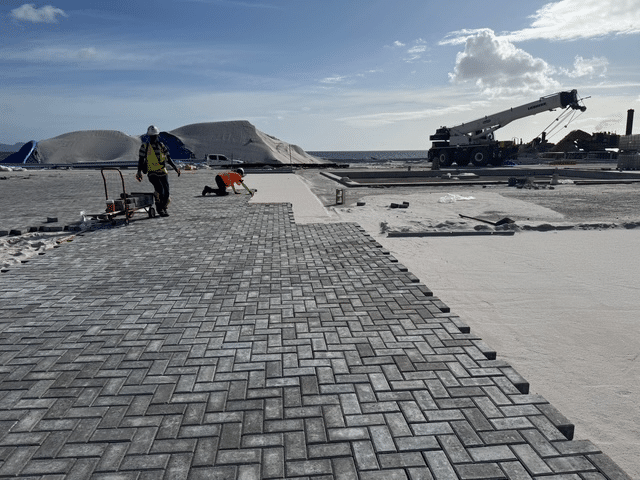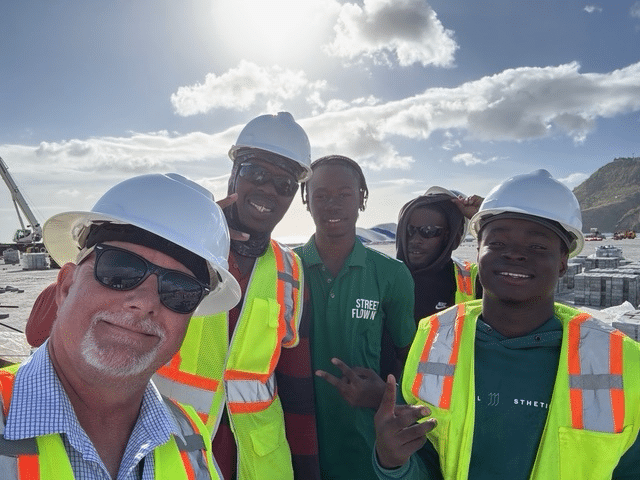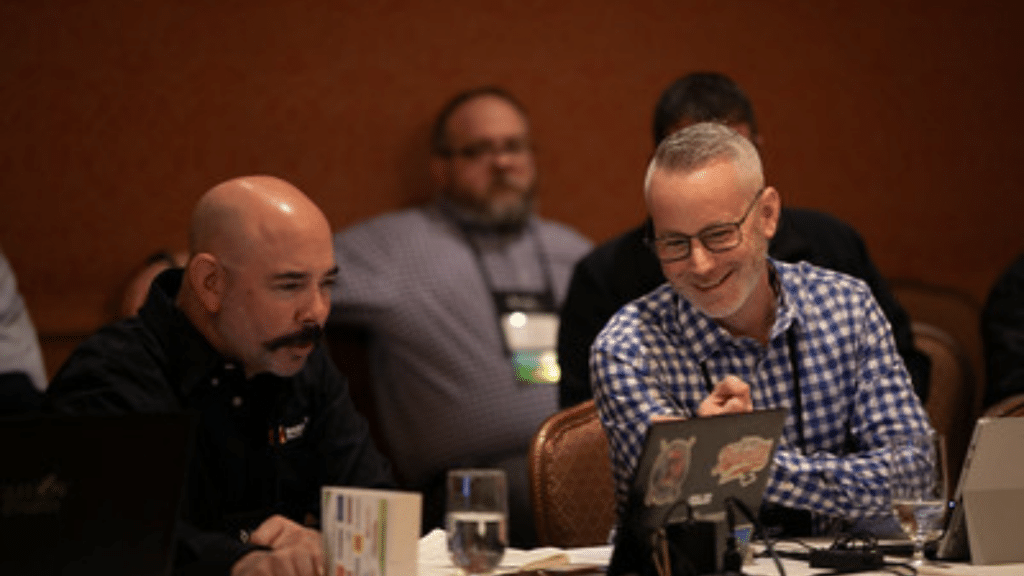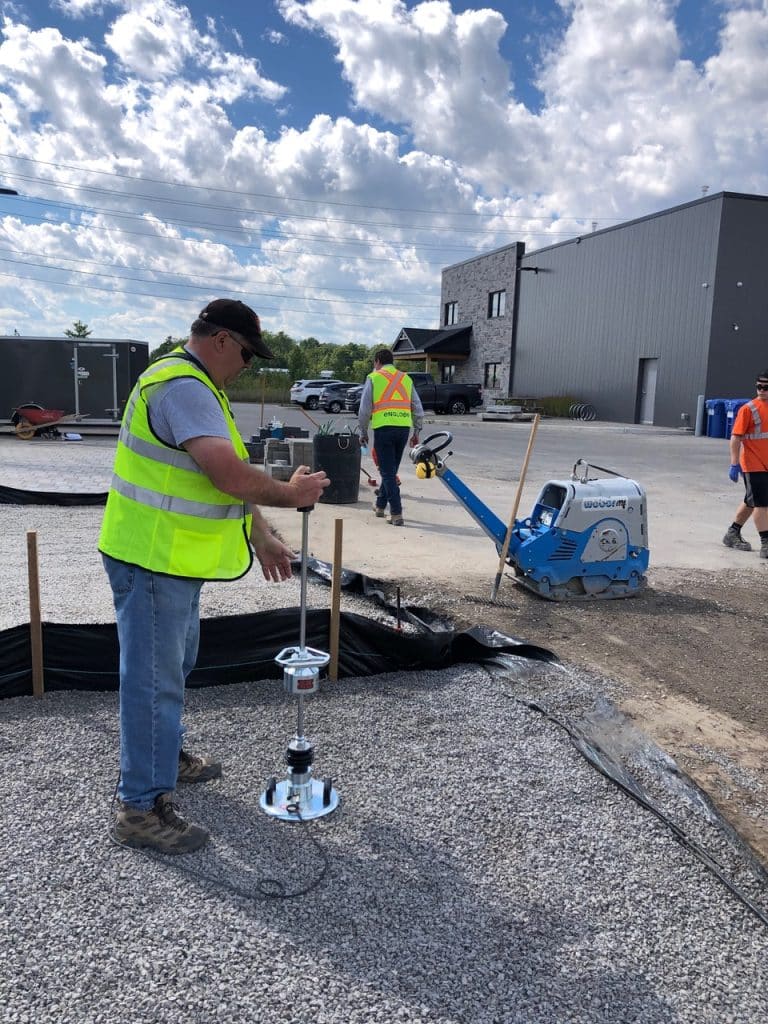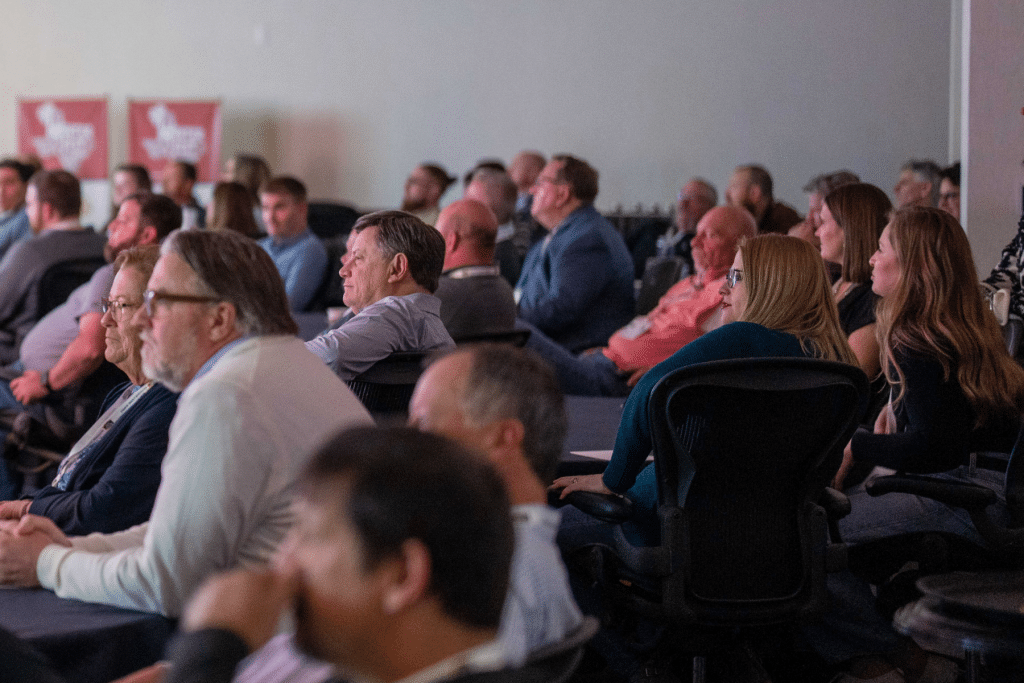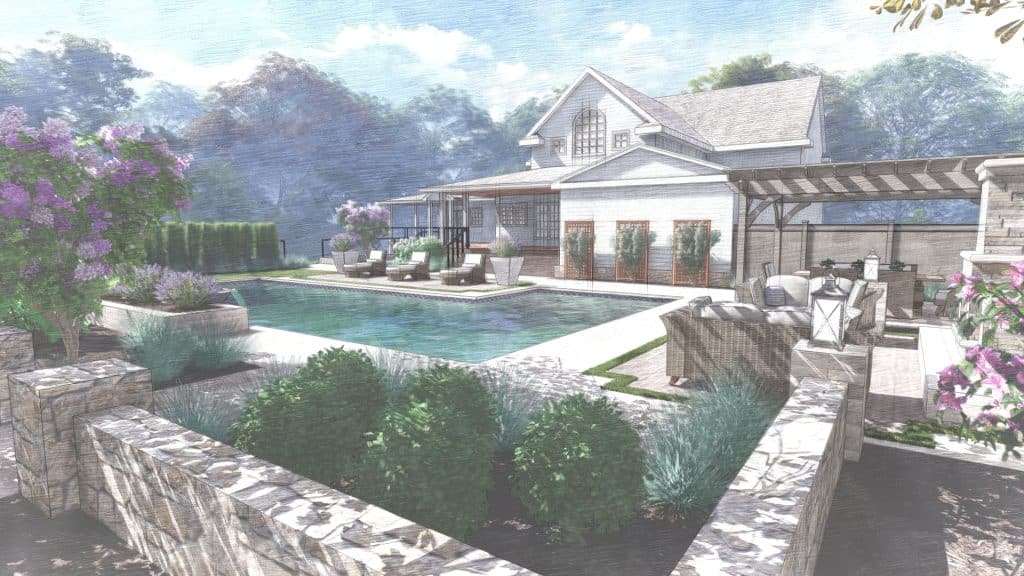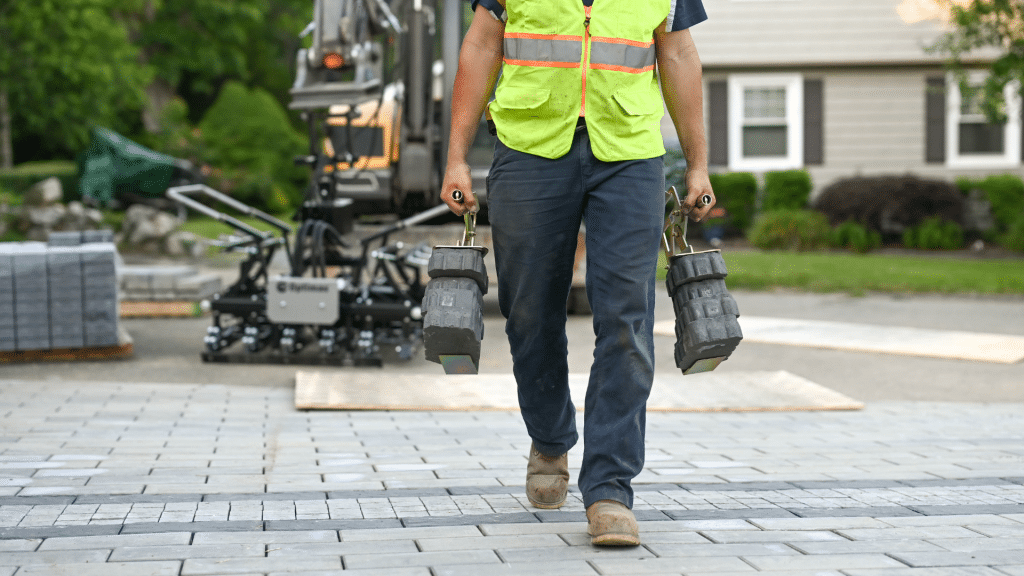Andrew Vear remembers the exact moment he realized he had a lot to learn about hardscaping.
“I ended up doing a patio, about 300 square feet, and I thought I knew what I was doing,” he recalls with a chuckle. “Come to find out, I did not know what I was doing, and I ended up laying it three times.”
That humbling experience in the late 1980s sparked a journey that would see Vear become a highly respected consultant in the industry, build multiple successful businesses, train countless professionals, and develop a philosophy centered on education, relationships, and passion for the craft.
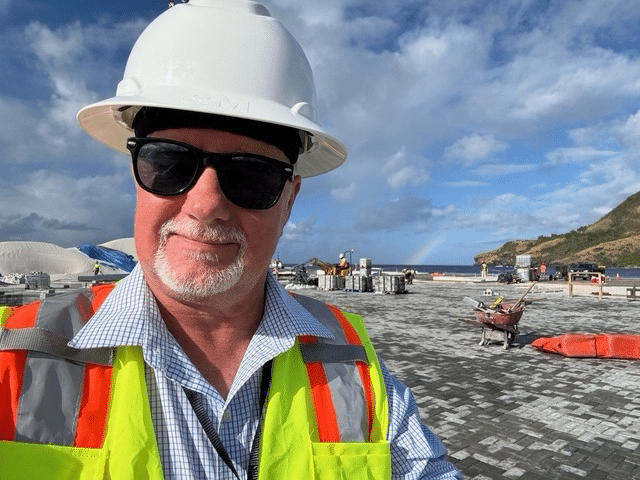
From Bricklayer to Business Owner
Vear began with a traditional masonry background. “I’m actually a bricklayer by trade,” he said, noting that his family encouraged him to pick a trade when he turned 18.
Starting small in Pompano Beach, Florida, Vear quickly realized he needed to hire installers with more expertise than himself. It exploded from there. What began as a single crew soon expanded to multiple teams.
“Before you know it, you’ve got 45 employees operating out of an office, and it’s a struggle to keep up with the work,” he said.
He built strong relationships with manufacturers and was soon getting leads and new work through his reputation. He expanded with additional offices in Clearwater and Destin, Florida, followed by New Orleans—all built using his proven formula of starting with one crew and gradually expanding to meet each need.
Gaining an Industry Education
A critical moment in Vear’s career came when he joined and earned certifications through the Interlocking Concrete Pavement Institute (ICPI). ICPI merged with the National Concrete Masonry Association (NCMA) and became the Concrete Masonry & Hardscape Association (CMHA) in 2023.
“I started with the ICPI when you had to be sponsored by a manufacturer,” he said. “It was such a pivotal move, meeting with people that were so much better than me.”
The connections and knowledge gained through the ICPI transformed his business approach. “Had I not joined the ICPI, I probably just would have stuck to residential work mostly,” Vear noted.
His expertise eventually led him to become an ICPI instructor, traveling internationally to teach others.
“It’s literally helping people and growing the industry. And it’s also a lot of fun,” he said.
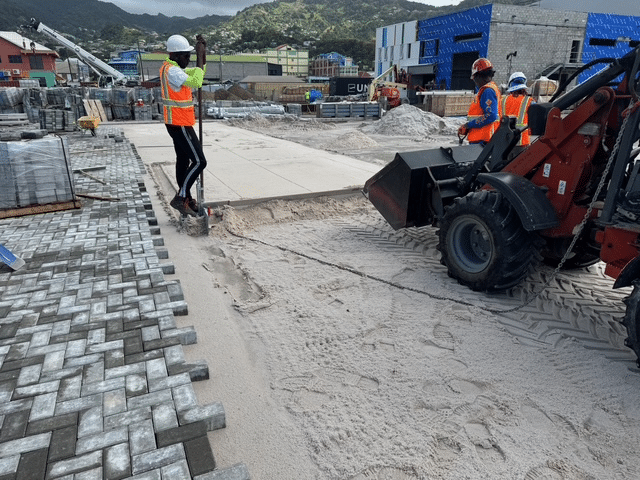
Building Client Relationships
Another one of Vear’s most significant business insights came when he recognized the importance of maintaining ongoing relationships with clients rather than just completing projects and moving on.
“Years ago, we used to sort of steer away from that—like we’ve done the job, we should just let the customer go, we’ll never see them again—and I realized how awful that was,” he explains. “It’s a bit like if you were to buy a brand-new car for $70,000 and then you go in for your first oil change and your salesperson says, ‘Oh no, I’m sorry, we just sell the cars here. We don’t service them.'”
This realization led him to develop a service department for his business, creating ongoing relationships with clients that proved invaluable. He started calling previous customers to check in on the life of the project and was able to turn those calls into follow-up work or expansions of the original project.
“When times get slow, you have a huge filing cabinet, what I call ‘gold’ really, because these are your customers you should continue to be doing business with,” Vear said. “So many people spend so much money on marketing and being able to get to someone’s house for a lead, and yet you have thousands of customers literally in file cabinets that haven’t heard from you in anything from two to 10 years.”
This emphasis on service and maintenance ultimately made his business more profitable and more attractive when he eventually sold it in 2001.
A Lifelong Passion
After selling his business, Vear continued to evolve his role in the industry, working as a general manager for a paver plant in Las Vegas and taking on consulting projects of increasing scale—including a recent 700,000-square-foot project with 16 acres of pavers.
His commitment to the hardscaping trade has even influenced the next generation, with his son following in his footsteps.
“I just love this industry,” Vear says. “It’s an industry that’s easy to get into and difficult to get out of because you learn to be very passionate about this industry.”
Advice for Aspiring Hardscapers
Vear is always willing to share his hard-won secrets and advice with aspiring hardscapers. His path to success wasn’t built on shortcuts but on a foundation of continuous learning and deliberate growth.
“If you’re starting out brand new into the industry, you’re going to join a crew and learn as much as you can,” Vear said, emphasizing that formal education should complement on-the-job training. When certification opportunities arise through organizations like the CMHA (formerly ICPI), he advises jumping at the chance. “It’s one of the best ways to gain knowledge about what you’re doing.”
Vear advocates for starting with smaller projects and building confidence and skills before tackling larger installations.
“Do some small projects, some small jobs. Start small and slowly grow the projects that you’re doing,” he said. “I know everybody wants to do the big projects, but sometimes big projects are big trouble.”
Vear’s decades of experience has also taught him the value of trusting his instincts about potential clients.
“If you come across a client that you have a bad feeling about, trust your feeling,” he said. “There is nothing worse than getting hung up on a project because you’re arguing or you can’t get it finished or someone’s not happy.” This willingness to occasionally walk away from work—even referring it to competitors—has saved him countless headaches throughout his career.
Perhaps most reassuringly for those considering hardscaping as a career path, Vear highlights the lasting security that comes with mastering a trade.
“You’ll always have something to fall back on once you learn a trade and that will never go away,” he said. “Times change, maybe a career changed, but you can come into a new town in the USA and say, ‘I’m a paver installer’ and you’ll be hired instantly. Once you have that behind you, you’ll never be without a job.”
